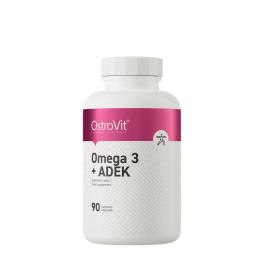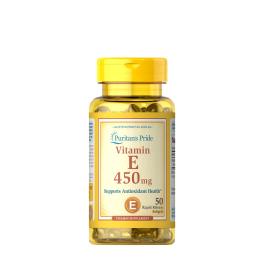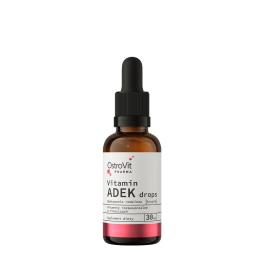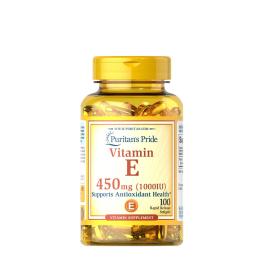Vitamin E is a collective name for 8 fat-soluble compounds, 4 tocopherols and 4 tocotrienols.
Vitamin E has very strong antioxidant effects. Antioxidants help to fight oxidative stress (free radicals). As a result, research suggests that it may help to prevent cardiovascular disease, cancer, improve osteoporosis, and may also help to prevent the development of osteoporosis.
The brain is very sensitive to oxidative stress, and as we age, this becomes more pronounced. So as a powerful antioxidant, vitamin E is particularly beneficial for nervous system health.
Because it can reduce prostaglandin levels, it can also relieve menstrual cramps.
Vitamin E deficiency is quite rare and is most often caused by problems with fat digestion rather than low vitamin E intake. If a deficiency develops, it causes damage to nerve cells (this can manifest as muscle weakness, coordination problems and visual impairment). Alternatively, in its absence, it increases the risk of bacterial and viral infections.
Foods rich in vitamin E:
- Wheatgrass, spinach, broccoli, tomatoes
- Almond, Sunflower seeds, Peanuts
- Soybeans
- Kiwi, Mango
Recommended daily intake (RDI) of vitamin E:
- 0-6 months: 4 mg
- 7-12 months: 5 mg
- 1-3 years: 6 mg
- 4-8 years: 7 mg
- 9-13 years: 11 mg
- 14 years and over: 15 mg
- During breastfeeding: 19 mg
- During pregnancy: 15 mg
Tolerated upper limit:
- 1-3 years: 200 mg
- 4-8 years: 300 mg
- 9-13 years: 600 mg
- 14-18 years: 800 mg
- 19+ years: 1,000 mg
It is important not to exceed the tolerable upper limit in the long term to avoid side effects.








































